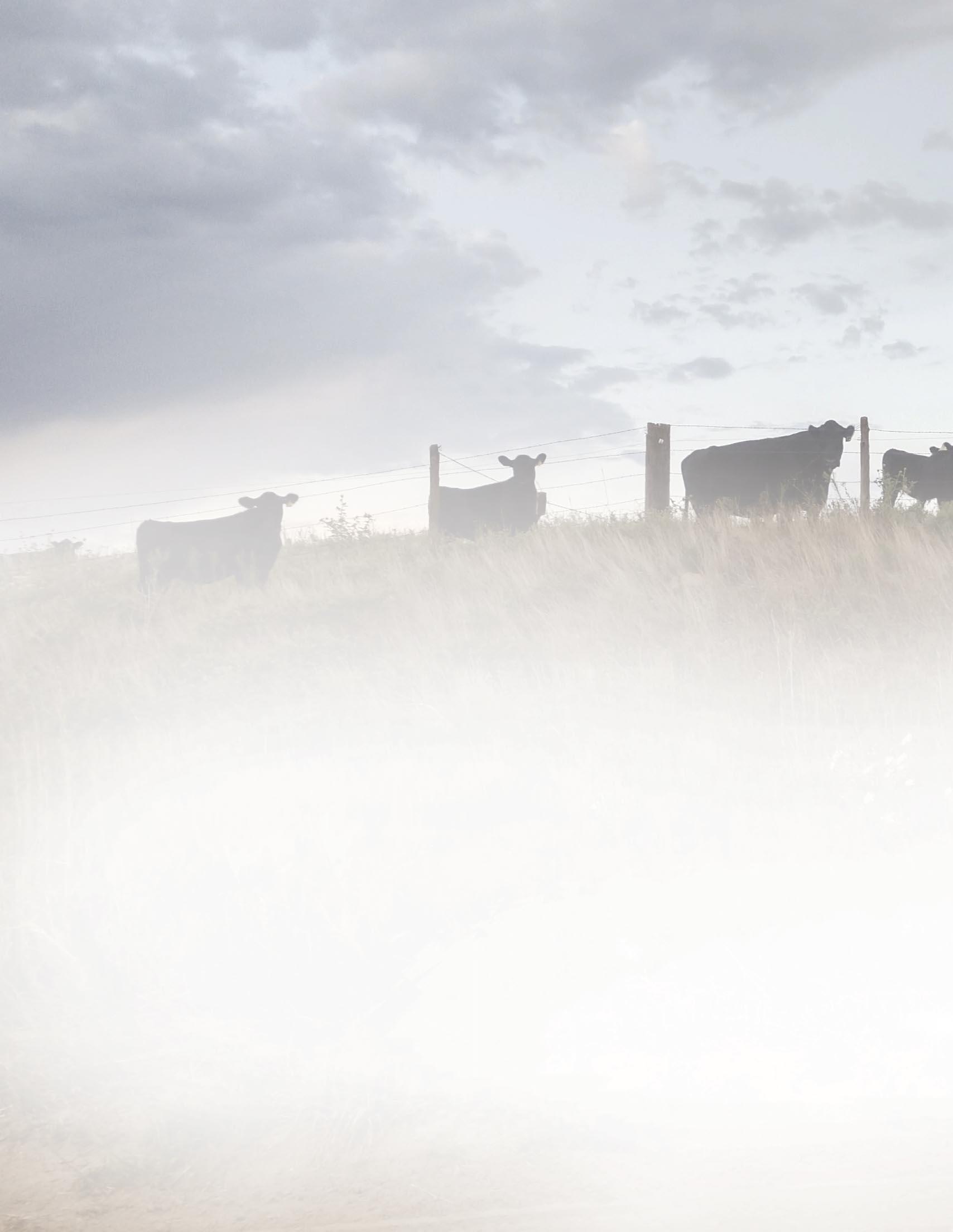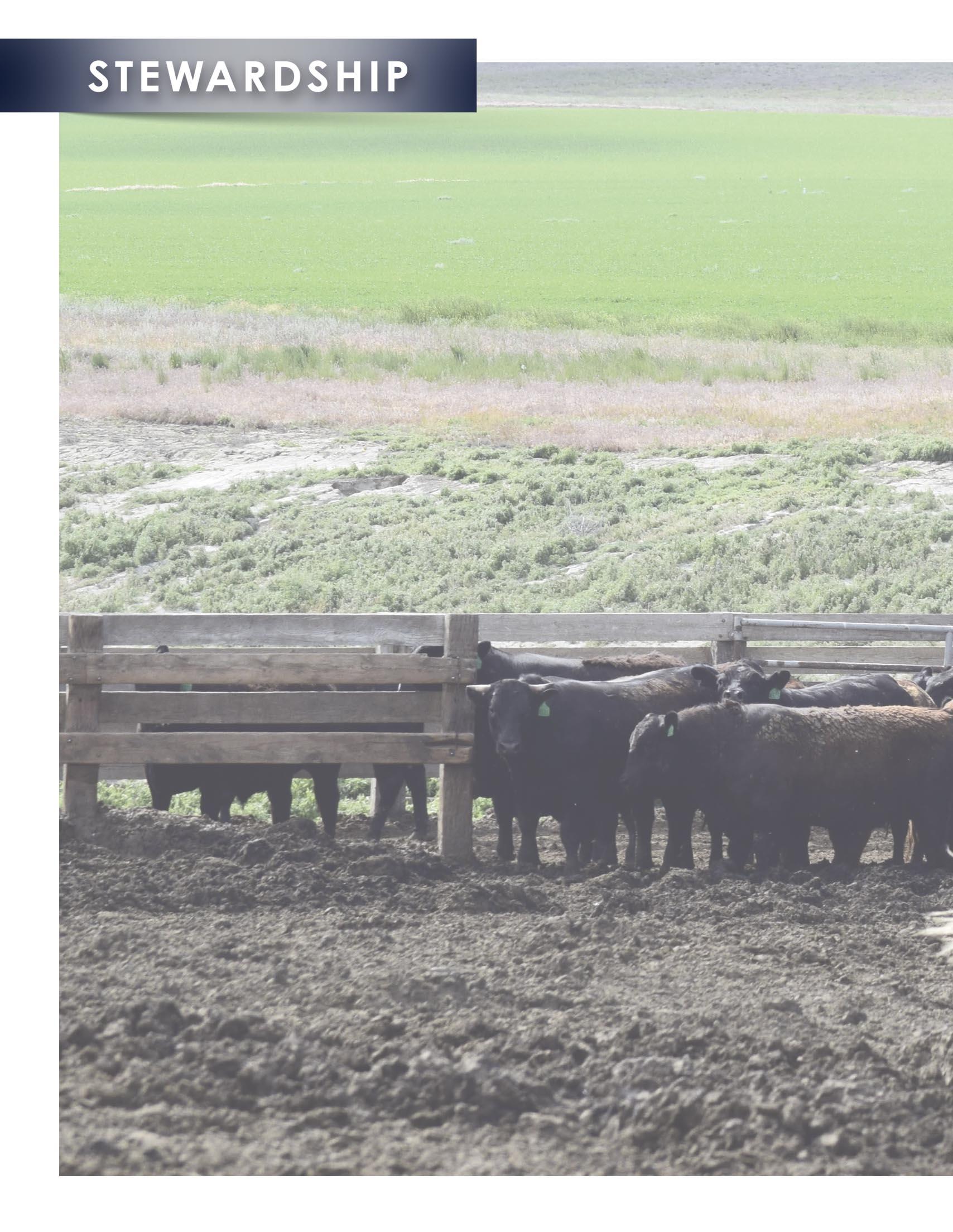
4 minute read
WELCOME
Welcome to the newest issue of Protein Producers. We are excited to provide important information about production agriculture that will continue to help you efficiently produce safe and wholesome protein. Recently, the COVID-19 pandemic has brought to light the importance of farmers, dairymen, and pork and beef producers. The working part of their day has not changed since the beginning of the pandemic. Fields still need to be prepared for planting and crops fertilized, cows must be fed and milked, and hogs and cattle still need excellent caregivers so they remain healthy. These tasks are not often the first to be considered essential, but it has become increasingly apparent that they are the definition of essential. Having the opportunity to observe, encourage, help, and work alongside many selfless and caring individuals during a time of unprecedented social difficulty has been inspiring.
Producers have stepped up during very uncertain times, knowing that agriculture and producing food does not stop because of a virus. Social distancing (I prefer the term physical distancing) has put extraordinary strain on the basic fabric of society, because people need more than work and sleep. Even though not much has changed in the production of protein, getting the products to the consumer has become increasingly difficult. With the physical distancing guidelines and stay at home orders implemented by our federal, state, and local governments, supply chains have been disrupted, as they attempt to divert food to where consumers are located.
Depending on the documented presence of the virus and decisions to reopen our retail economy, it is uncertain what percentage of protein products will be needed in normal restaurant settings. Additionally, beef, pork, milk, and dairy products have been difficult to keep stocked in local grocery stores. These sources of protein are being produced with the same efficiency as prior to COVID-19 because of the extraordinary and dedicated caregivers referenced in the introduction. Though supply from production sources has not decreased, processing plants have struggled to maintain efficiency and supply chains have been slow to adjust delivery due to logistics. Dr. Jim Lowe and Dr. Dan Thomson discuss a few of these concepts in a podcast they recently produced, available at: https://online.vetmed.illinois.edu/the-round-barn-podcast.
One of our biggest immediate challenges is how to mitigate COVID-19 effectively in protein processing plants. There are two main goals which need to be accomplished: keeping the processing work force safe and their families protected, while also maintaining the speed of commerce to prevent a slow down of product supply when demand is high. Great minds and special people are working to solve these issues, but it is unknown if it will take weeks or months to improve this difficult situation. Strategies such as the proposed Fed Cattle Set-Aside Program may be necessary to help support producers as they work through how to negotiate limited market access. We all question how physical distancing will affect the future of these plants and how supply and demand economics will adjust. These same questions are being asked by every sector of our economy, as businesses both large and small maneuver through the proper financial channels to keep their livelihoods viable.
There will be social activity adjustments requiring more consideration for proper biosecurity. In this issue, Dr. Wade Taylor will address how public health discussions and concepts for virus mitigation have focused on prevention, herd immunity, monitoring disease development, and epidemiology. These same processes and procedures are applicable to all operations producing protein. While it is important to be knowledgeable about how to mitigate disease, it is equally important to have leaders in place to properly implement these concepts. Dr. Nels Lindberg will address the importance of strong leadership during a crisis.
The outcome of the pandemic is currently unpredictable, with several unknowns that may or may not be answered by the time this issue is available to our readers. These include determining the number of people who have been and continue to be exposed to the virus, whether they have effectively mounted a protective immune response, what protective immunity looks like, and when antibody testing for an accurate disease surveillance program will be available with appropriate specificity and sensitivity for COVID-19. Accurate antibody and antigen testing, along with a reduction in clinical cases, will be the only ways we can tell if our communities have developed herd immunity. Arguably, the most important question is when a vaccine will be available and how well it will work. Once these questions are answered, the fear of the unknown will be squelched and we can once again be a social society, thriving at work and play.
In the meantime, work life goes on with spring and summer activities. Calves are being vaccinated, cattle are being turned out to pasture, feedyards continue receiving and shipping, bulls are being fertility tested, and fall crops are being planted. All PAC members are grateful for the opportunity producers have given us to help them take care of their livestock. Please reach out to us with your questions and concerns as we all navigate through one of the toughest times we have experienced since September 11, 2001. I am confident that we will overcome the current challenges in food production and, as a result, new technologies will surface to help us be more efficient when dealing with the next adverse event. Please enjoy this issue of Protein Producers.
Dr. Corbin Stevens
Pot Roast
We want to showcase the talented chefs that read our magazine. In this issue we are featuring Arturo and Wrenn Pacheco who run cattle in the Flint Hills of Kansas while also maintaining a fun and unique cooking blog which can be found at cookingwiththecowboy.com. If you have a recipe that you would like to feature in The Pot Roast section of the magazine, please email us at protein.producers@pacdvms.com. Our goal is to continue discovering recipes from agriculture’s finest.

Thank You
We want to thank the industry partners, publications and associations who have provided content to Protein Producers . Also, a big thank you to our readers for supporting us, offering content and helping us improve each issue. We could not do any of this without all of you!
Disclaimer: The views, opinions, and information expressed in this magazine are those of the authors and do not necessarily reflect Production Animal Consultation's policy or position.













